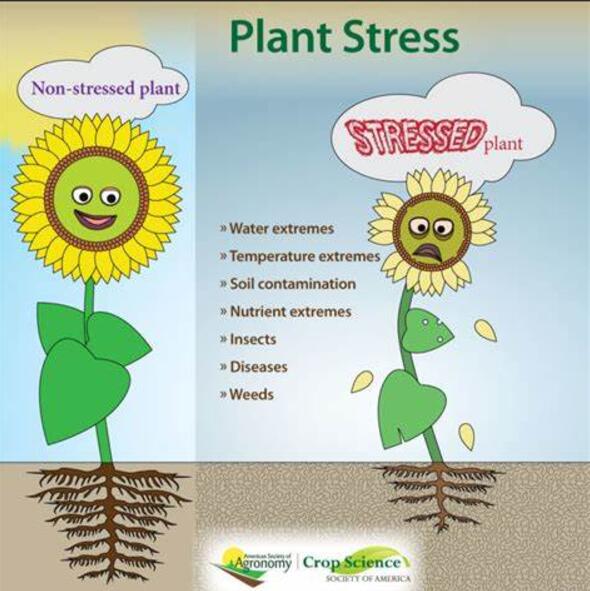Salt stress in wheat: A Physiological and Genetic Perspective
IF 6.8
Q1 PLANT SCIENCES
引用次数: 0
Abstract
Salt stress pose a significant abiotic challenge affecting wheat production globally, posing a threat to food security. Despite the inherent physiological and biochemical mechanisms in salinity-tolerant plants, progress in developing resilient, widely accessible wheat cultivars remains limited due to genetic complexity, environmental variability and resource constraints. The aim of this review is to present a thorough and original synthesis of the current state-of-knowledge on the physiological, biochemical and genetic factors behind wheat resistance to salt stress. Through an analysis of current developments in genetic engineering, molecular breeding, and conventional breeding, we identify promising approaches to improve wheat resistance to salt stress. Moving forward, the application of cutting-edge genomic techniques like CRISPR/Cas9 and genomic selection to precisely target and modify genes involved in salt tolerance are discussed. Finally, we highlight research gaps and suggest future directions for improving wheat resilience to salinity. Researchers, agronomists and policy makers seeking to enhance wheat production and sustainable farming under salt stress circumstances might benefit greatly from this review.
小麦的盐胁迫:生理和遗传的观点
盐胁迫是影响全球小麦生产的重大非生物挑战,对粮食安全构成威胁。尽管耐盐碱植物具有内在的生理和生化机制,但由于遗传复杂性、环境变异性和资源限制,在开发耐盐碱小麦品种方面的进展仍然有限。本文综述了小麦抗盐胁迫的生理、生化和遗传因素的最新研究进展。通过分析基因工程、分子育种和传统育种的最新进展,我们确定了提高小麦抗盐胁迫能力的有希望的方法。展望未来,本文将讨论利用CRISPR/Cas9和基因组选择等前沿基因组技术,精确定位和修饰与耐盐性相关的基因。最后,我们指出了研究的不足,并提出了提高小麦耐盐性的未来方向。寻求在盐胁迫环境下提高小麦产量和可持续农业的研究人员、农学家和政策制定者可能会从这篇综述中受益匪浅。
本文章由计算机程序翻译,如有差异,请以英文原文为准。
求助全文
约1分钟内获得全文
求助全文
来源期刊

Plant Stress
PLANT SCIENCES-
CiteScore
5.20
自引率
8.00%
发文量
76
审稿时长
63 days
期刊介绍:
The journal Plant Stress deals with plant (or other photoautotrophs, such as algae, cyanobacteria and lichens) responses to abiotic and biotic stress factors that can result in limited growth and productivity. Such responses can be analyzed and described at a physiological, biochemical and molecular level. Experimental approaches/technologies aiming to improve growth and productivity with a potential for downstream validation under stress conditions will also be considered. Both fundamental and applied research manuscripts are welcome, provided that clear mechanistic hypotheses are made and descriptive approaches are avoided. In addition, high-quality review articles will also be considered, provided they follow a critical approach and stimulate thought for future research avenues.
Plant Stress welcomes high-quality manuscripts related (but not limited) to interactions between plants and:
Lack of water (drought) and excess (flooding),
Salinity stress,
Elevated temperature and/or low temperature (chilling and freezing),
Hypoxia and/or anoxia,
Mineral nutrient excess and/or deficiency,
Heavy metals and/or metalloids,
Plant priming (chemical, biological, physiological, nanomaterial, biostimulant) approaches for improved stress protection,
Viral, phytoplasma, bacterial and fungal plant-pathogen interactions.
The journal welcomes basic and applied research articles, as well as review articles and short communications. All submitted manuscripts will be subject to a thorough peer-reviewing process.
 求助内容:
求助内容: 应助结果提醒方式:
应助结果提醒方式:


